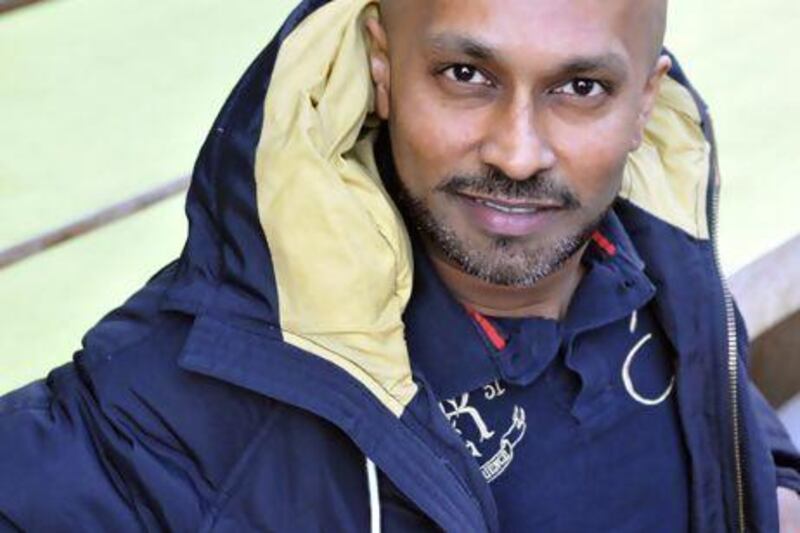A year ago, Akram Khan was told his dance career was over. Now, with the Olympics ceremony under his belt, two films on the boil and three shows on tour, Britain's best-known choreographer could hardly be busier if he tried.
The 38-year-old ball of energy is in Paris this month with his most personal work to date in Desh (meaning Homeland)- a full-length solo that explores his family roots in Bangladesh through his signature fusion of contemporary dance with the north Indian classical dance form kathak.
Khan's schedule for the coming months sounds like a plate-spinning act, but when he ripped his Achilles tendon during a rehearsal last January, doctors feared he would never dance again.
"It was very traumatic," he says. "Ballet dancers don't come back after an Achilles tendon rupture. It's very rarely possible."
Shows were cancelled and plans cut short as Khan - unable to walk for two months - headed into a "humiliating" round of surgery and physiotherapy.
"I'm a dancer, so it's ego, you know, somebody's telling you how to do a simple walk. I wanted to shoot them.
"But from that it went into running, jogging, then jumping, then a little bit of confidence comes back. And then suddenly you're in the Olympics," says Khan, who choreographed and performed a segment of the August opening ceremony.
In the solo Desh, a chameleonic Khan gives life to a dense cast of characters as the action shifts, dreamlike, from his south London birthplace to the grimy, noisy streets of Bangladesh in the span of 80 visually sumptuous minutes.
While he has recovered mobility, Khan has yet to get his full strength back and hence had to make changes to the show, on world tour after premiering in London to rapturous reviews last year.
"You find other ways and that was very valuable," he says. "I'm stronger in other ways."
Currently, Khan is preparing a duet with the flamenco dancer Israel Galvan, in between touring with two more of his shows - Gnosis and Sacred Monsters.
In May he will premiere a creation called iTMOi inspired by Igor Stravinsky's Rite of Spring in the French city of Grenoble, before taking that show on the road, too.
Recent sideline projects have included teaming up with the artist Anish Kapoor to shoot a spoof Gangnam Style video in support of the Chinese dissident artist Ai Weiwei. He is also choreographing a film called Desert Dancer, based on the true story of a young Iranian man persecuted for his love of dance, and is hoping to direct a film based on Desh.
In terms of juggling projects, Khan says he is busier than ever before. And his personal life is no different. In March he will become a father for the first time when his Japanese dancer wife gives birth to a baby girl.
The story of Khan's injury and recovery loops back to the times when he was a little boy and liked to break things to see what was inside.
"I was destructive as a child, I was fascinated to see things broken and put back together again." he recalls. "I was very physical, I couldn't keep my hands still."
That was when Khan's mother started teaching her 3-year-old son the Indian folk dance of kathak - to tire him out. That dance is today the backbone of his art.
Formal lessons followed at the age of 7, but it was a battle of wills with a mother determined to "impose" her culture on him.
"It was traumatic," says Khan, who talks with disarming candour and wry humour of his upbringing. "My mother used to bribe me with toys, each performance I would get a little Matchbox car."
While he talks about his strong-willed mother, Khan insists that the "challenging relationship" in his life is with his father who is bent on rooting out the Westerner in his son and making a true Bangladeshi out of him. "Desh is very much about my father," he says of the piece that opens with a scene of him burying his father before pounding violently at the earth - as if to root out the story of their shared past, like a grown-up version of the creative destruction he displayed as a child.
Co-created with the poet and writer Karthika Nair, the visual designer Tim Yip and the composer Jocelyn Pook, the work has a political dimension too, reflecting his sense that "everything is political" in Bangladesh, starting with the drinking water that is polluted by Western waste dumping.
"This is my story. It's part true, part lie," he says. "It needed to be epic, because it was very personal."
But for now, Khan says he is done digging for his family roots: "I think I need to move on - I need to get a life!"





